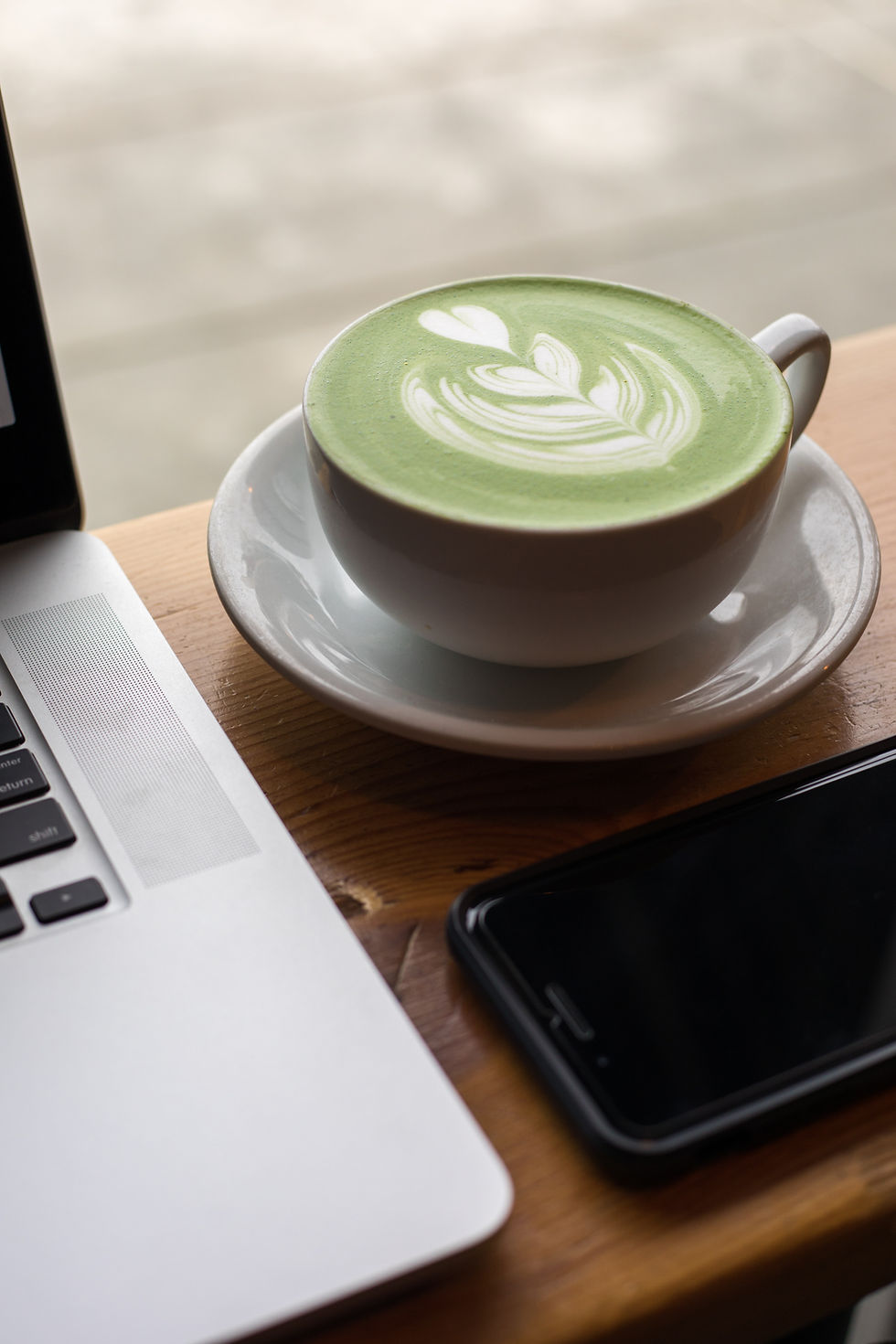The Truth About Coffee
- Lilia Vlaici
- Mar 10
- 3 min read

Coffee is among the most consumed beverages worldwide, second only to water.
Its stimulating effects have made it a staple in many daily routines. However, the debate over its health implications continues. Let's explore coffee's benefits and drawbacks from a nutritional standpoint, understand why consuming it on an empty stomach isn't advisable, consider healthier alternatives like matcha, and discuss practical tips to reduce coffee consumption.
The Good: Benefits of Coffee
When consumed in moderation, coffee offers several potential health benefits:
Cognitive Enhancement: Caffeine stimulates the central nervous system, leading to improved alertness and concentration.
Physical Performance: Caffeine increases adrenaline levels, which can enhance physical performance by improving muscle oxidation.
Antioxidant Properties: Coffee contains polyphenols and antioxidants that support cardiovascular and respiratory health.
Disease Risk Reduction: Some studies suggest that coffee consumption may lower the risk of certain diseases, such as Parkinson's and Type 2 diabetes.
The Bad: Why You Should Avoid Coffee on an Empty Stomach
Many people start their day with a cup of coffee before eating, but this can have negative effects on digestion and overall health:
Increases cortisol levels – Drinking coffee first thing in the morning can spike cortisol, your body’s primary stress hormone, which can lead to increased anxiety, energy crashes, and hormonal imbalances.
Disrupts digestion – Coffee stimulates acid production, which can cause bloating, acid reflux, and discomfort, especially if you haven't eaten.
Affects nutrient absorption – High acidity can interfere with the absorption of essential nutrients like iron and magnesium.
Why Avoid Coffee on an Empty Stomach?
Consuming coffee without food can intensify its negative effects:
Increased Acidity: Coffee stimulates stomach acid production, which can lead to gastritis or exacerbate existing digestive issues.
Hormonal Imbalance: Drinking coffee first thing in the morning can spike cortisol levels, the body's primary stress hormone, leading to increased anxiety and energy crashes.
A Healthier Alternative: Matcha

If you’re looking for a gentler, more balanced source of caffeine, matcha is an excellent choice. Here’s why:
Slow-release caffeine – Unlike coffee, matcha provides sustained energy without the crash.
Rich in L-theanine – This amino acid promotes calmness and focus, counteracting the jitters from caffeine.
Loaded with antioxidants – Matcha contains catechins, which help fight oxidative stress and support the immune system.
Alkalizing effect – Unlike coffee, matcha has a more balanced pH level, making it gentler on digestion.
Practical Tips to Reduce Coffee Consumption
If you're considering cutting back on coffee, here are some strategies:
Gradual Reduction: Slowly decrease your coffee intake to minimize withdrawal symptoms.
Hydration: Drink 500ml of water for every cup of coffee consumed to counteract dehydration.
Alternative Beverages: Explore coffee substitutes like chicory root coffee, barley coffee, or herbal teas that mimic coffee's flavor without caffeine.
Nutrient-Rich Breakfast: Start your day with a balanced meal rich in proteins and healthy fats to maintain energy levels without relying on caffeine.
Adequate Sleep: Ensure you're getting sufficient rest to reduce the need for stimulants.
Physical Activity: Engage in regular exercise to boost natural energy levels and reduce dependence on caffeine.
Final Tips
Coffee, when consumed mindfully, can be part of a healthy lifestyle. However, it's essential to be aware of its potential drawbacks, especially when consumed on an empty stomach or in excess. Exploring alternatives like matcha or herbal teas can provide similar benefits with fewer risks. By making informed choices and listening to your body's signals, you can enjoy your beverages while maintaining optimal health.



Comments